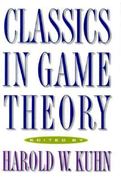Question
1. In Massachuetts, the typical person spends $600 per month on food. They split expenditures between eating out (E), and all other food expenditures (F).
1. In Massachuetts, the typical person spends $600 per month on food. They split expenditures between eating out (E), and all other food expenditures (F). A typical restaurant meal costs $20, and other food costs $1 per unit.
(a) (5 points) What is the equation for a typical budget constraint?
(b) (5 points) What is the opportunity cost of eating out?
(c) (5 points) Graph the budget constraint. (Draw your graph large, you'll be adding other things to this graph.)
(d) (10 points) Assuming that the typical individual splits their expenditures evenly between eating out and other food consumption, what is the utility maximizing bundle for this individual?
(e) (10 points) If eating out and other food expenditures are imperfect substitutes, add the utility maximizing bundle and a representative indifference curve to your graph in part c.
(f) (5 points) To encourage people to eat out more, Massachusetts decides to subsidize meals by giving everyone a rebate of $10 per meal. What is the equation for the budget constraint with the rebate?
(g) (10 points) If the typical individual continues to split expenditures between eating out and other food expenditures, what is the new utility maximizing bundle? Add this to your graph in c with a representative indifference curve.
(h) (5 points) A state legislator suggests that, instead of giving the rebate, they should have given everyone a gift card for $200 to spend on food. Add this budget constraint to your graph in part c.
(i) (10 points) Using the budget constraints in your graph, explain who would prefer to have a $200 gift card and who would prefer to have a $20 rebate.
2. Assume that the market for gasoline can be described by a demand curve given by p = 150 25q. (a) (10 points) What is the elasticity of demand at a price of 80?
(b) (10 points) What is the elasticity of demand at a price of 10?
(c) (5 points) What is the unit elastic point on the demand curve?
(d) (5 points) If demand is elastic, and the price decreases, does total revenue go up or down? Explain
Step by Step Solution
There are 3 Steps involved in it
Step: 1

Get Instant Access to Expert-Tailored Solutions
See step-by-step solutions with expert insights and AI powered tools for academic success
Step: 2

Step: 3

Ace Your Homework with AI
Get the answers you need in no time with our AI-driven, step-by-step assistance
Get Started


